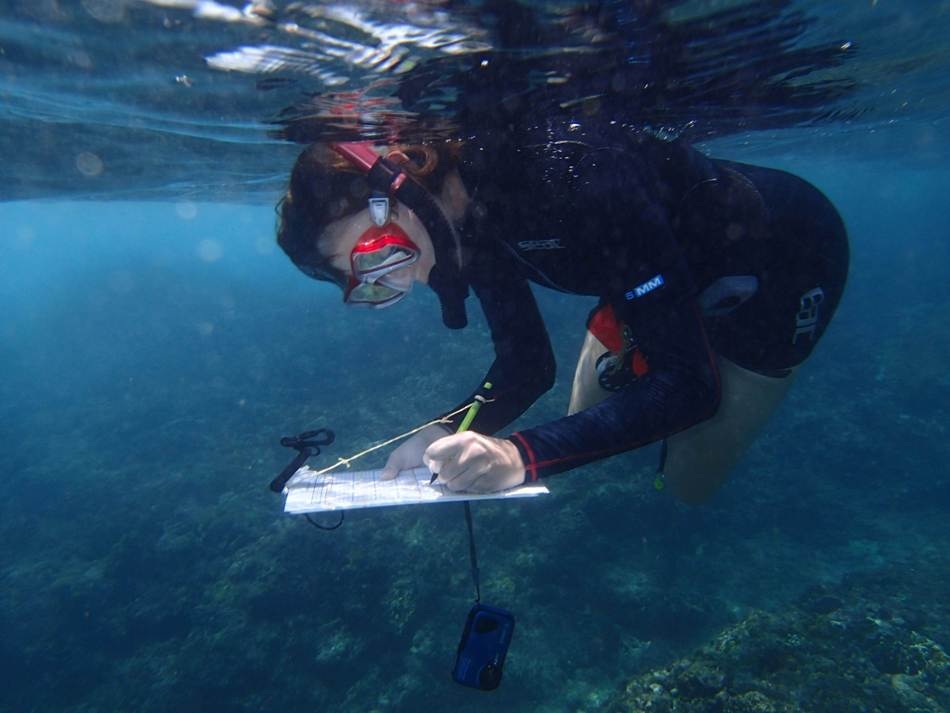Oct 23 2018
Scientists discovered that when the temperature of water heats up for corals, fish “tempers” cool down, providing the first strong evidence of coral bleaching acting as a trigger for fast change in reef fish behavior.
 Image credit: Lancaster University
Image credit: Lancaster University
Scientists from Lancaster University and collaborating institutes, including the ARC Centre of Excellence for Coral Reef Studies (Coral CoE), have published their findings in Nature Climate Change, which reveal how the iconic butterflyfish, thought to be sensitive indicators of reef health, can offer an early warning sign that reef fish populations are in jeopardy.
The international team of scientists spent over 600 hours underwater studying butterflyfish over a two-year period including the extraordinary mass coral bleaching event of 2016.
Led by Dr. Sally Keith of Lancaster University, formerly Center for Macroecology, Evolution, and Climate, the team inspected 17 reefs across the central Indo-Pacific in Japan, the Philippines, Indonesia and Christmas Island (Indian Ocean).
During the preliminary data collection, the scientists were oblivious that the disastrous bleaching event was on the horizon.
Once underway, the scientists understood that this serendipitous “natural experiment” placed them in an exclusive position to see how fish changed their behavior in reaction to large-scale bleaching disruption.
The team eagerly repeated their field observations, gathering a total of 5,259 encounters between individuals of 38 different butterflyfish species.
Within a year after the bleaching occurrence it was evident that, although the same number of butterflyfish continued to live on the reefs, they were acting very differently.
We observed that aggressive behaviour had decreased in butterflyfish by an average of two thirds, with the biggest drops observed on reefs where bleaching had killed off the most coral.
We think this is because the most nutritious coral was also the most susceptible to bleaching, so the fish moved from a well-rounded diet to the equivalent of eating only lettuce leaves - it was only enough to survive rather than to thrive.”
Dr. Sally Keith, Lead Researcher
University of Vermont ecologist and co-author Nathan Sanders said: “This matters because butterflyfishes are often seen as the ‘canaries of the reef’ due to their strong reliance on coral, they are often the first to suffer after a disturbance event.”
Such variations in behavior may well be the trigger behind more apparent changes such as dwindling numbers of fish individuals and species.
The finding has the potential to help elucidate the mechanism behind population declines in similar such disrupted ecosystems globally.
Co-author Dr. Erika Woolsey of Stanford University said: “By monitoring behaviour, we might get an early warning sign of bigger things to come.”
Our work highlights that animals can adjust to catastrophic events in the short term through flexible behaviour, but these changes may not be sustainable in the longer-term."
Professor Andrew Baird, Co-author